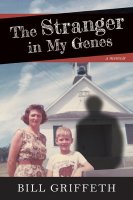Are most Americans anti-immigration? Absolutely not.
Is President Trump anti-immigration? I don't think so. It's difficult to pin down what he actually believes about anything, but being concerned about uncontrolled immigration from unstable and/or dangerous countries does not mean one is opposed to immigration per se.
I found George Friedman's take on the subject enlightening, despite missing a few of my concerns. His example of our societal attitude towards Indian and Chinese immigrants is especially interesting.
Trump has pointed to two very different patterns. One is immigration to the U.S. by Muslims. The other is illegal Mexican immigration. Both resonated with Trump’s supporters. It is interesting to consider other immigration patterns that have not become an issue. One is immigration to the U.S. from India. The other is immigration from China and other parts of Asia. Both have been massive movements since about 1970, and both have had substantial social consequences.
It is the example of the Chinese and the Indians that blows up the theory that Americans have an overarching anti-immigrant sensibility that Trump is tapping into. It also raises serious doubts that Trump is anti-immigrant. I have searched and may have missed it, but I didn’t find that Trump made anti-Chinese or anti-Indian statements, as opposed to anti-Muslim and anti-Mexican statements. If it were classic anti-immigrant sentiment, the rage would be against Indian immigrants who have emerged as a powerful and wealthy ethnic group in a startlingly short time. But there is minimally detectable hostility toward them, which means that the immigration situation in the United States is far more complex than it seems.
The issue is not whether Trump and his followers are generally anti-immigrant. The question is why they are so hostile toward Muslims ... and to Mexicans. I wish the explanation were more complex, but it is actually quite simple in both cases.
The United States has been at war with Muslim groups since Sept. 11, 2001. ... When there is war, there is suspicion of the enemy. When there is suspicion of the enemy, there is fear that émigrés might be in the United States on false pretenses. ... After 15 years of war and many Americans dead, [post-9/11 fears have] congealed into a framework of distrust that may well go beyond the rational. ... Are all Muslims warriors against the United States? No. Do you know who is or isn’t? Also no. Wars, therefore, create fears. There is nothing new in the American fear of Muslims in the context of war.
The Mexican situation is different. ... [T]he driving issue is illegal Mexican immigration. There is a great deal of homage paid to the rule of law. Congress passed a law specifying the mechanics of legal migration. Some 5 million Mexicans broke the law. Whether this has harmed the U.S. economy or not, the indifference to enforcing the law by people who are normally most insistent on the rule of law has created a sense of hypocrisy.
The anger is not only directed at the Mexicans. It is part of the rage against those living in the bubble, who present themselves as humanitarians, but who will encounter the illegal aliens, if at all, as their servants. And rightly or wrongly, some suspect that open support for breaking the law is designed to bring cheap labor to support the lifestyles of the wealthy at the expense of the declining middle class. The fact that the well-to-do tend to be defenders of illegal aliens while also demanding the rule of law increases suspicions.
At first I took issue with this, for while true, it doesn't speak for the many of my friends who count themselves "defenders of illegal aliens" but are far from wealthy by American standards. But...
As we saw with President Franklin D. Roosevelt and the Japanese, things that are obvious to those living decades later are not obvious at the time. Indeed, it is a failure of imagination to be unable to empathize with the fear felt after Pearl Harbor. In our time, the failure to empathize comes from those who feel immune to illegal immigration or the 15-year war. It is part of the growing fragmentation of American society that different classes and regions should experience these things so differently, and that each side has so little understanding of the other.
My non-wealthy friends may not be among the rich, but it is true that they (like me) are largely immune to the effects of both illegal immigration and terrorism. We even benefit from illegal (slave) labor through lower prices.
(In my life, it's the actually the Indian and Chinese immigrants he mentions who have caused the problems—they are the ones whose competition directly affects the Information Technology industry—but I believe that legal, controlled immigration is healthy for a country. How could I be anti-immigrant when our own daughter is one?)
As long as illegal immigration is permitted, the foundations of American culture are at risk. It is not simply immigration, but the illegality that is frightening, because it not only can’t be controlled, but also the law is under attack by those who claim to uphold it. The fear that a person’s livelihood is being undermined and his cultural foundation is being overwhelmed creates deep fear of the intentions of the more powerful.
I want to quote a lot more, but I fear I'm pushing the edge of "fair use" for a review as it is. It's an article worth reading. I'll just make one more comment, on what Friedman calls "the refusal of the government at all levels to enforce the law."
I'm not a fan of "zero-tolerance" legal situations, which leave no room for discretion and grace. But massive discord between rules and enforcement breeds both disrespect for the law and tyranny. When a law is on the books, but not enforced, people become accustomed to violating it. This may look like freedom, but it opens the door to graft, blackmail, indifference to other laws, and some very nasty surprises.
When I was studying to pass my driver's test, there was a law on the books in Pennsylvania requiring that vehicles must slow down to 25 miles per hour when passing through any intersection. (For all I know, it's still on the books.) Obviously that was written a long time ago, and rather than the law being changed to fit reality, it simply stopped being enforced. If I hadn't been taking a driving course, I would never have known of its existence. However—and this is the kick—the police sometimes found it to be useful: If for some reason a miscreant wiggled out of whatever they wanted to charge him with, they could usually get him on the charge of passing through (often multiple) intersections at more than 25 mph. Do you see what this does? You may go for years, casually breaking the law, but suddenly one day, when they want to get you, they've got you.
What train transportation could be in America.
Don't I wish! I think trains are the most beautiful and relaxing way to travel. More room and ability to move about than either airplanes or automobiles; tables for working; power outlets; and (if done right) lounge, restaurant, and playspace cars. Human-dimensioned views. Someone else drives. But to compete with planes and cars (especially self-driving cars) a few important potential roadblocks come to mind.
- Good parking at the stations (now often inadequate)
- Cost (currently not competitive in most places)
- Security (if it becomes widespread and popular, would we get TSA-style screening?)
Still, wouldn't you love it?
The BBC's coverage of the 44th annual March for Life is lacking a little in credibility. Either that, or they have a phone line to heaven I wish they'd share.
After reporting that Vice President Mike Pence spoke at the march, the BBC added,
Former Presidents Ronald Reagan and George W Bush have also addressed the crowds, but over the phone.
I assume they mean that during their time in office these presidents spoke to the marchers, but I rather like this image.
Permalink | Read 1968 times | Comments (2)
Category Just for Fun: [first] [previous] [next] [newest]
Does having Donald Trump as President of the United States frighten me? Absolutely. He appears to be a loose cannon who might more effectively fight against the evils that assail us ... or he might turn his fire on all that is good in our country. Most likely, he will do both.
Am I panicking? Absolutely not. Frankly, I would probably be more afraid if it were Hillary Clinton in the White House, because she's a well-entrenched part of the system and would quickly settle into the job-as-usual. As happened with President Obama, Big Things Would Get Done.
I am not a fan of Big Things Getting Done when they are issues on which the country is deeply and closely divided.
Maybe with Republican control of both houses of Congress there might have been effective opposition to Mrs. Clinton, but I doubt this election could have produced that situation without also putting Mr. Trump in the White House. Even now, that control is tenuous.
I find a recent George Friedman essay to be somewhat comforting. Once again he points out the limited powers of the president, especially an unpopular one.
[The American presidency] is the most noted position in the world, imbued by observers with all the power inherent to the world’s most powerful country. Everyone is now trying to understand what Trump intends to do.
At the same time, the American president is among the weakest institutional leaders in Euro-American civilization. He can do some things unilaterally, particularly in foreign policy, but Congress can block them. He can do some things by executive order, but the Supreme Court can overrule them. He can pass certain programs that require cooperation from states, but the states can refuse to cooperate. At every step, as the founders intended, his ability to act unilaterally is severely limited.
[The defection of only three Republican senators would] make it impossible to pass any proposed legislation. As such, any Republican senator who can position himself as a potential defector will be able to negotiate for the president’s support on any number of issues. The president will either be forced to compromise or risk having the legislation defeated.
Senators are not free actors. They need to be re-elected. Their calculation on whether to oppose a Republican president will depend heavily (if not entirely) on whether the president will help or hurt them in their re-election bids. That depends on the president’s approval ratings, particularly in the senators’ home states.
Trump’s approval ratings are unlikely to fall below [the current] 37%, but to be effective, he can’t stay at that level. Republican senators will look at the president’s negative ratings in their states and calculate whether supporting his programs might lock 50% of voters against them. It is important to recall that constitutionally, a senator is supposed to serve the people of his state, not the president.
I confess I'm not completely comfortable with that much "power to the people"—largely because approval ratings give more power to the loudest and most obnoxious among us. But there it is. Speak up or be left out.
EPCOT has a new party: The International Festival of the Arts. We checked it out, and found it almost as much fun as their Food and Wine Festival. There was art, mostly with a Disney theme, and music, and other features, but our interest lay mainly in the culinary arts.
I do remember one painter, probably because his name was Noah. "Noah Fine Art" is his business, and I remarked that it's pretty amazing to be known only by your first name. When we came home, I did a Google search simply on "Noah art"—and his website was the first hit.
But as I said, food was our main interest. There was much more we could have eaten, but even sharing the already-small portions doesn't leave room (or budget) for everything.
From Pop Eats!: Sous Vide Venison with Butternut Squash Purée, Pomegranate Reduction, Pickled Turnip, and Juniper Berry Powder, followed by Almond Frangipane Cake layered with Raspberry Jam and Chocolate. The flavors worked together in an amazing way, and the venison was the best I've ever tasted. (Porter liked the venison he ate in New Zealand better, but I did not have any on that occasion.) The cake was even better than it looks. (As usual, you can click on the images for a bigger picture.)
From The Refreshment Cool Post: Chilled Shrimp, Quinoa, Layered Vegetables, Spiced Yogurt, and Red Pepper Coulis. I'm sorry I forgot to take a picture of this, because the presentation was totally not what I expected, and the taste was really good.
From The Painter's Palate: Trio of Savory Croissant Doughnuts—Whipped Herb Cream Cheese with Sea Salt, Chicken Mousse with Fresh Herbs & Everything Bagel Seasoning, and Spicy Tuna with Sriracha Mayonnaise and Sesame Seeds. These were good—the Spicy Tuna winning hands down—but messy to eat. I missed photographing this one, too; fortunately the picture was available in Disney's promotional materials.
From The Artist's Table: Callebaut Belgian Sipping Chocolate Flight: White, Milk, Dark. As you can see, I forgot to take this picture till we were well into this incredibly delicious trio. Even the white chocolate (my least favorite) was wonderful, the dark was the best, and the milk had caramel notes that made it spectacular.
It was a hot day (in the 80's and sunny) so a repeat-repeat visit to Japan for shaved ice was in order after we had put some space (and food) between it and the chocolate. This time we tried the rainbow flavor; it was good but tangerine is still the best, and it's still worth paying the extra buck to get the sweet milk topping.
Finally, and this has nothing to do with food but everything to do with amusing our grandchildren, or more likely their mothers. This was a wall decoration at Italy; I call it La Figmenta.
When it comes to paying out money, I know who "The Government" is. That's you, me, and all other taxpayers out there. Including those overseas who bear the burden of paying taxes to the Federal Government even if their money was earned totally outside of the United States. But that's another issue.
Even as our family watches carefully how our personal money is spent, so we try to be careful that the government's money is spent wisely.
Thus we were concerned when we received a bill from an insurance company we'd never heard of, for a health insurance plan we had not signed up for, assuring us that we owed $0.00 and the government had already paid the full premium of $1375.36 for the first month. I will spare you the details of all the hours Porter has spent on the phone trying to get this cleared up. How do you cancel a policy that can't be found in the system, but for which the government is paying out at the rate of over $16,500 per year? Finally, he wrote an e-mail to the Inspector General.
Mr. Inspector General Levinson,
I am not sure you are the correct person to send my issues to - but hope your office can point me in the right direction if you are not the appropriate channel.
I have two issues, one involving money paid out by the government incorrectly and one involving the difficulty in pursuing such questions via the healthcare.gov team and system.
First, I received a bill from "Florida Health Care Plans" for an ACA plan that I never signed up for, but rather was assigned to automatically by the ACA computers. No one at "Florida Health Care Plans" can tell me how this came to be. Further they say they cannot cancel the policy under the law as they can only do that if healthcare.gov sends them a notice to do so. Further they have no connecting key that can be used by the healthcare.gov team to show how this policy came into existence. When I called the ACA they could not find any trace of this policy with "Florida Health Care Plans." The only policy they show for me is the CORRECT policy I signed up for myself with "Florida Blue," an entirely different company despite the similarity of their names.
The bogus bill shows that the government will pay "Florida Health Care Plans" $1375.36 per month for each month in 2017. I will owe nothing. In other words my payments are to be zero each month. This is the rub. If a "policyholder" does not pay his premium his insurance is cancelled - and the payments from the government to the insurance company would at least stop. However, since I owe nothing each month on this policy there is no trigger to automatically stop payments! The government will be out over $16,000 by the end of the year paying on this bogus, useless policy.
Second issue. Healthcare.gov is not following the ITIL (IT Infrastructure Library) standards. I understand that all federal computing systems are supposed to follow ITIL. When I was a consultant for IBM on the Fannie Mae account this was certainly the case. ITIL provides that all issues should be recorded and a ticket or issue number assigned to them. Further, this ticket number should be given to the person who reported the issue. In my case I should have been given a ticket number so I could reference it in future calls. I was told by the supervisor of supervisors (which was as high as I was permitted to go in my telephone inquiry with healthcare.gov) that no ticket numbers are ever generated, but rather I should wait for a call back from the "Advanced Resolution Center" in 5 to 7 days. I am very doubtful this will happen as in 2016 I got an incorrect "Corrected" 1095a and went through the same process without ever getting the issue resolved.
Please advise how to proceed with these two issues.
Or, I should say, he tried to write the Inspector General. But having sent this to their published e-mail address, he received it back with the following explanation:
Delivery has failed to these recipients or groups:
hhstips@oig.hhs.gov
Your message couldn't be delivered to the recipient because you don't have permission to send to it.Ask the recipient's email admin to add you to the accept list for the recipient.
For more information, see DSN 5.7.129 Errors in Exchange Online and Office 365.
So he respectfully requested to be added, using the e-mail address postmaster@oig.hhs.gov—the sending address for the above rejection. The reply?
How much time would you spend trying to save the United States $16,500? How many bogus charges like this do you think are being made? How many of the people in whose name the government is being billed will put any effort into trying to correct a bill on which they owe nothing?
Stay tuned.
Here's some wise advice from Robert Heinlein's Citizen of the Galaxy. The context was running a business, but moms of young children will understand the need more than anyone!
"I'm so busy doing what I must do that I don't have time for what I ought to do ... and I never get a chance to do what I want to do!"
"Son, that's universal. The way to keep that recipe from killing you is to occasionally do what you want to do anyhow."
That's how I ended up re-reading this book. Feeling ill was keeping me from sleeping, so I got up and for some reason thought of the only Heinlein book that survived (because it was not with the rest) a long-ago bookshelf purge. Mostly if I'm awake I'd rather be working, but that formula does not play well when the body is demanding the mind's attention. Citizen of the Galaxy was the perfect diversion. And how nice it was to find this justification when I reached the penultimate page!
Permalink | Read 2026 times | Comments (2)
Category Random Musings: [first] [previous] [next] [newest]
We're back again to another George Friedman essay, this time on Nationalism, Internationalism and New Politics. It's not new; it's been sitting in my "Drafts" folder for a while. But it's good. Some excerpts:
The world is experiencing a shift from the old liberal-conservative model to an internationalist-nationalist model. Nationalist challenges against the internationalist model have moved from the margins of the political system to the center, winning victories in the United States and the United Kingdom, and rising in strength in other countries.
What began as a lesson learned from World War II and a prudent response to containing the Soviet Union became a moral orthodoxy and a moral imperative. In many ways it buried political distinctions. All major parties were internationalists.
In 2008, the underside of interdependence showed its hand. Capitalism is prone to financial crises, and one occurred in 2008. In a nationalist environment with barriers between countries – from tariffs to currencies – a financial crisis in one country has the strong potential of being moderated in other countries. The crisis of 2008 tore through the world.
The 2008 crisis clearly revealed the core weakness of the interdependent system. But the very success of interdependence had been gnawing away at the system for decades. It is true that barring serious malfunction, intensified international integration can increase economic growth on the whole. But human beings cannot make a living off economic growth “on the whole.”
It was discovered that with interdependence and integration, individual nations had lost control over their destinies. An impersonal system that seemed to be uncontrolled determined the fate of nations and their populations. It also was discovered that the idea that nations were obsolete might be true for elites, who followed capital where it went, but being Greek was very different from being German, and being Chinese was very different from being American. The nation mattered because where you lived determined how you would experience life.
What followed was an attempt by the internationalist state to suppress what it saw as parochialism, and what those who had benefited least from internationalism saw as the fabric of life.
The battle is in the first stages, but it is a battle that was inevitable. The world is vast and humanity is an abstraction. My place in the world, my town, my culture and my nation are conceptually more manageable. The core principle of liberalism is the right to national self-determination. The instruments of internationalism ... ignore the nation and the right of citizens to govern their nation.
As in all things, the issue is not simple. Internationalism has been dramatically successful in enriching the world since World War II. Its problem is ... that only part of the population has enjoyed this wealth, and there are things more fundamental than wealth such as cultural identity and differences. Internationalism is tone-deaf or hostile to cultural identity, which is its weakness.
 The Stranger in My Genes by Bill Griffeth (New England Historic Genealogical Society, 2016)
The Stranger in My Genes by Bill Griffeth (New England Historic Genealogical Society, 2016)
The New England Historic Genealogical Society has been pushing its new book for quite a while, and I've mostly been ignoring it. I love the NEGHS, especially its treasure-filled library in Boston. But I mostly—perhaps wrongly—associate them with dusty old tomes, the value of which lies in the bits and pieces of genealogical information that can be gleaned from them. The Stranger in My Genes is NOT that kind of book. The NEHGS very wisely published the first chapter in their American Ancestors magazine, and I was immediately hooked.
The book I was in the middle of reading (okay, barely started) is H. D. Smyth's Atomic Energy for Military Purposes. It was a gift for my father from his parents on his 24th birthday, and currently sits on my bookshelves with his other books on the immediate post-Hiroshima period. It is also nearly 300 pages of dense technical writing, so when The Stranger in My Genes became available at our local library (I had requested that they add it to their collection), it's small wonder I jumped at the diversion.
Part genealogy, part mystery, and part cautionary tale, this soul-searching human-interest story is also beautifully-crafted. What's not to like? Both Porter and I read it in a day. That's not to say it's short or simple; we just couldn't put it down.
I won't say much about the story itself to avoid spoiling the mystery. Author Bill Griffeth, an amateur genealogist, received a big surprise when comparing his DNA test results with his cousin's: they weren't related. Where that led is the subject of his book, and illustrates well the risks and benefits of genetic testing.
I've said it over and over again this past year: Good people don't necessarily make good presidents, and vice versa. Lo and behold, George Friedman said the same thing today, only he said it much better and gives plausible reasons for why that's true. Some tidbits:
The idea that policy optimization is at the core of the presidency is incorrect. The president is not the U.S.’ chief administrative officer. He is a leader and manager of the political process. His job is to be a symbol around which a democratic society draws the battle lines of who we are. He must express his vision as something aesthetic, not prosaic. The president cannot spare time from his real job to craft policies. Successful presidents know that and hide it. Trump doesn’t try to hide it.
No U.S. president has the ability to comprehend the vast array of policy issues that face him, nor can he grasp the depths of any single issue. Some presidents have tried. They generally did not do well.
Presidents who succeed have certain characteristics. They can lead. They provide the public with a sense that they understand what is needed and how to get it done, and that they care deeply about those who are hoping problems will be solved. They rarely take office with that ability, but rather gain it in the course of balancing things that cannot be balanced. In many cases, their ability to lead is best seen after they leave office.
Reagan was charged with being detached. Jimmy Carter was praised for his deep involvement in the details of governing. Carter was defeated after his first term. Reagan won two terms and has become an iconic figure. Some defend Reagan by claiming that he was far more involved in policymaking than it appeared. That may be true, but Reagan knew something Carter didn’t. Making policy is not a president’s central task, except in crisis. Presidents should be leaders who create a seductive image of what the country should be like and allow the love and hate of a country to focus on them – by allowing themselves to become a battleground that drives the country forward. Carter created an energy policy. He could not lead, seduce or accept his role as an icon. He missed the point of the presidency.
Trump’s supporters expect him to be extraordinary. His opponents believe he will be a disaster. From my point of view, he will be the 45th president of the United States, the 45th man whom some imbued with the powers of the messiah and others saw as the devil incarnate. I doubt he will be either. He will not spend his time making policies. He will be too busy doing what other presidents do: making calls pleading with obscure congressmen to let his bill out of committee, with very little to offer or threaten. He will bargain away many things to get a little of what he wants.
The whole article is worth reading, at least if you are as ignorant as I am about the political process.
At first glance, despite his many racing achievements—and having his own Wikipedia entry—Danny Chew isn't the kind of success most parents envision for their children. He's 54 years old, still living with his mother, and has spent his life ... riding his bicycle. All day, every day, all over Pittsburgh, across the country multiple times (twice winning the Race Across America), to Alaska and back with his nephew, all things biking, all the time, with the goal of riding one million miles in his lifetime. A monomaniac, content to live very simply (except when it comes to bicycles) and remain dependent on others.
That's Danny Chew seen from the outside.
But there's success, and then there's success. The world needs all sorts of people. A freak accident last September revealed much more of Danny Chew seen from the inside.
Immediately after the crash—even before the ambulance had arrived—not feeling his legs and fearing paralysis, Danny expressed his determination to continue toward his million mile goal, even if he needed to use a handcycle. That's grit.
But that's nothing compared to what Danny has done and is doing in working for his extensive rehabilitation—since he is, indeed, paralyzed from the chest down and most likely will be for life. That monomania I mentioned? It's powering his recovery.
Do you know what else is powering his recovery? His vast and devoted network of friends.
Immediately after Danny's accident, the world poured itself at his feet. People came long distances to visit him in the hospital, even though they knew they might be turned away because his condition was still so serious. His nephew set up a fundraising site, and money poured in from multitudes of fellow bikers. The Dirty Dozen bike race in Pittsburgh, held a couple of months later, was turned into a fundraiser for Danny. Despite insurance, expenses are huge, not only for his rehab, medical expenses, and necessary equipment, but also for refurbishing his family home to accommodate his new needs. Expenses are high, but so is the wave of people inspired to help.
Inspired by Danny Chew. By who he is and what he has done, despite—or maybe because of—his eccentricities. His life, even before the paralysis, may not be what most of us would choose, but when it comes to what's most important, can it be called anything less than successful?
Which is more the possessor of the world—he who has a thousand houses, or he who, without one house to call his own, has ten in which his knock at the door would rouse instant jubilation? Which is the richer—the man who, his large money spent, would have no refuge; or he for whose necessity a hundred would sacrifice comfort?
— George MacDonald
If you want to help Danny out, you can make a contribution here. (Disclosure, which is probably not necessary since I get nothing monetary out of this: Danny's sister is our friend, a former coworker of Porter's.)
Permalink | Read 1779 times | Comments (0)
Category Random Musings: [first] [previous] [next] [newest]
One year ago we were five days away from embarking on our Gambian Adventure. (Yes, I'm all too aware that I still have most of that trip to write about.) If our trip were this year instead, we would have had to cancel it.
The Gambia is poised on the brink of real political reform, but it may not come as easily nor as peacefully as originally hoped. From a New York Times article two days ago, emphasis mine:
The longtime leader lost a Dec. 1 election to opposition coalition candidate Adama Barrow. Jammeh initially conceded, but later called for a new vote. The United Nations, the United States, the European Union and others have united in criticizing him.
Jammeh's party filed a petition to the country's Supreme Court against the election, and a key court ruling is expected Jan. 10.
What might follow the court ruling is anybody's guess. Civil war could erupt. Most Gambians are happy with the regime change, but not all. The Gambia's neighbors have not ruled out military intervention if necessary, and even diplomatic and/or economic sanctions could devastate the Gambia's shaky economy.
The uncertainty has already disrupted the educations of those who are the country's best hope for progress, and it could get much worse.
In recognition of the solidifying crisis, the United States on Saturday advised American citizens not to travel to Gambia "because of the potential for civil unrest and violence in the near future."
The U.S. State Department also ordered relatives of diplomats and embassy staff to leave Gambia and warned all its citizens to depart now, saying those who choose to stay should "prepare for the possible deterioration of security."
Per these recommendations, the Gambia's Most Awesome Math Professor is away on what she hopes will be a short visit out of the country. But of course her home, her job, her beloved students, and our new Gambian friends are left behind.
Please pray that the transition will be smooth and the disruption short-lived. If all goes well, the new president should take office on January 19, and the Gambia will embark on a new, democratic path of reform. It will be a difficult road—the Gambia is desperately poor and lacking in resources—but a hopeful one.
This was another good reading year, not a new record for quanity, but my second highest since beginning to keep track in 2010. Granted, it squeaked into that position because I counted one children's picture book (King Ron of the Triceratops), but it was my son-in-law's first published book, so it deserved no less.
Looking at the chronological list (which has rankings, warnings, and review links), you can pretty much tell the months that we were travelling overseas. There was no month in which I read zero books, but some had only one or two. Summer was my best time for reading: over half the books fell into July, August, and September.
Here's the alphbetical list. Once again, I'm pleased with the variety, even though it's pretty heavy on George MacDonald because of my goal of reading all of his books in order over a period of three years. Titles in bold I found particularly worthwhile.
- The Bible (Holman Christian Standard Bible version)
- The Black Star of Kingston by S. D. Smith
- The Case for a Creator by Lee Strobel
- Clouds of Witness by Dorothy Sayers
- The Comedy of Errors by William Shakespeare
- Cure by Jo Marchant
- Daughter of Liberty by Edna Boutwell
- Dere Mable by E. Streeter
- A Dish of Orts by George MacDonald
- Donal Grant by George MacDonald
- Early Tales of the Atomic Age by Daniel Lang
- The Elect Lady by George MacDonald
- Ember Falls by S. D. Smith
- Far Above Rubies by George MacDonald
- The Fatal Tree by Stephen Lawhead
- The Flight of the Shadow by George MacDonald
- George MacDonald: 365 Readings by C. S. Lewis
- The Green Ember by S. D. Smith
- Guild Court by George MacDonald
- Heather and Snow by George MacDonald
- Hidden Secrets Revealed by Wallace M. Campbell
- Hiroshima by John Hersey
- Hiroshima Diary by Dr. Michihoko Hachiya
- The History of the Renaissance World by Susan Wise Bauer
- Home Again by George MacDonald
- The Hope of the Gospel by George MacDonald
- Into the Atomic Age edited by Sholto Watt
- King Ron of the Triceratops by S. S. Paulson
- The Light Princess and other Fairy Stories by George MacDonald
- Lilith A (first draft of Lilith) by George MacDonald
- Lilith by George MacDonald
- The Lion of St. Mark by G. A. Henty
- The Lion of St. Mark by G. A. Henty (re-read after visiting Venice)
- Main-Travelled Roads by Hamlin Garland
- Mark and Livy by Resa Willis
- Men of Science, Men of God by Henry M. Morris
- My Side of the Mountain by Jean Craighead George
- The New Testament (King James version)
- Old Granny Fox by Thornton W. Burgess
- One Day in the Life of Ivan Denisovich by Aleksandr Solzhenitsyn
- Poetical Works, Volume 1 by George MacDonald
- Poetical Works, Volume 2 by George MacDonald
- The Power of Habit by Charles Duhigg
- The Princess and Curdie by George MacDonald
- The Road to Character by David Brooks
- A Rough Shaking by George MacDonald
- Salted with Fire by George MacDonald
- Sidney Chambers and the Forgiveness of Sins by James Runcie
- Sidney Chambers and the Perils of the Night by James Runcie
- Sidney Chambers and the Problem of Evil by James Runcie
- Sidney Chambers and the Shadow of Death by James Runcie
- Stephen Archer and Other Tales by George MacDonald
- There and Back by George MacDonald
- They're Your Kids by Sam Sorbo
- The Tragedie of Hamlet by William Shakespeare, a study by George MacDonald
- The Tragedy of Coriolanus by William Shakespeare
- Unnatural Death by Dorothy Sayers
- Unspoken Sermons Series II by George MacDonald
- Unspoken Sermons Series III by George MacDonald
- The Village on the Edge of the World by A. T. Oram
- Weighed and Wanting by George MacDonald
- What's Mine's Mine by George MacDonald
- What's Wrong with the World by G. K. Chesterton
- Whose Body? by Dorothy Sayers
- Wild Animals I have Known by Ernest Thompson Seton
- Will Rogers (Hallmark)
I'm sure my creative readers will find ways to make this even better, but I love the way it takes up just a small amount of space behind a couch, reclaims a hidden wall outlet, includes a device-charging station, and provides room for a book and a tea cup. :)
Permalink | Read 2080 times | Comments (0)
Category Everyday Life: [first] [previous] [next] [newest]
 Main-Travelled Roads: Six Enduring Stories of the Midlands of Americaby Hamlin Garland (originally published 1891)
Main-Travelled Roads: Six Enduring Stories of the Midlands of Americaby Hamlin Garland (originally published 1891)
Main-Travelled Roads is the kind of book an English teacher might have assigned me, though none did. In my school days I would have probably hated it; now I merely find it depressing. It's well-written; I can't deny that. And the stories of unrelenting poverty, toil, and hopelessness in farm life probably provide a good balance to a santitized, Little House on the Praire-style perspective. But neither view tells the whole story, and if stories of deprivation and misery have been popular among English teachers for decades, that only explains why I didn't learn to like literature and writing until after I left school.
But it gets me one book closer to reaching my 95 by 65 Goal #63: Read 26 existing but as yet unread books from my bookshelves. This puts me at 21.








